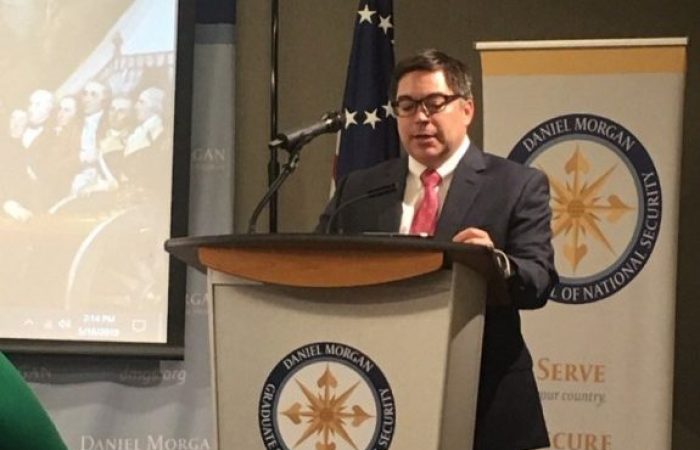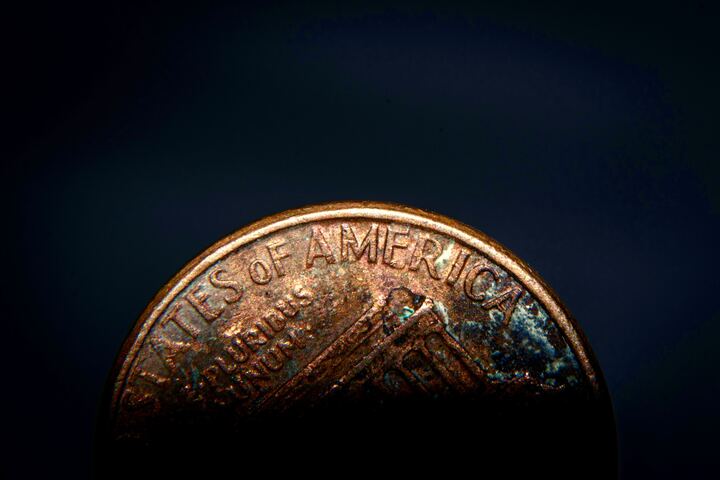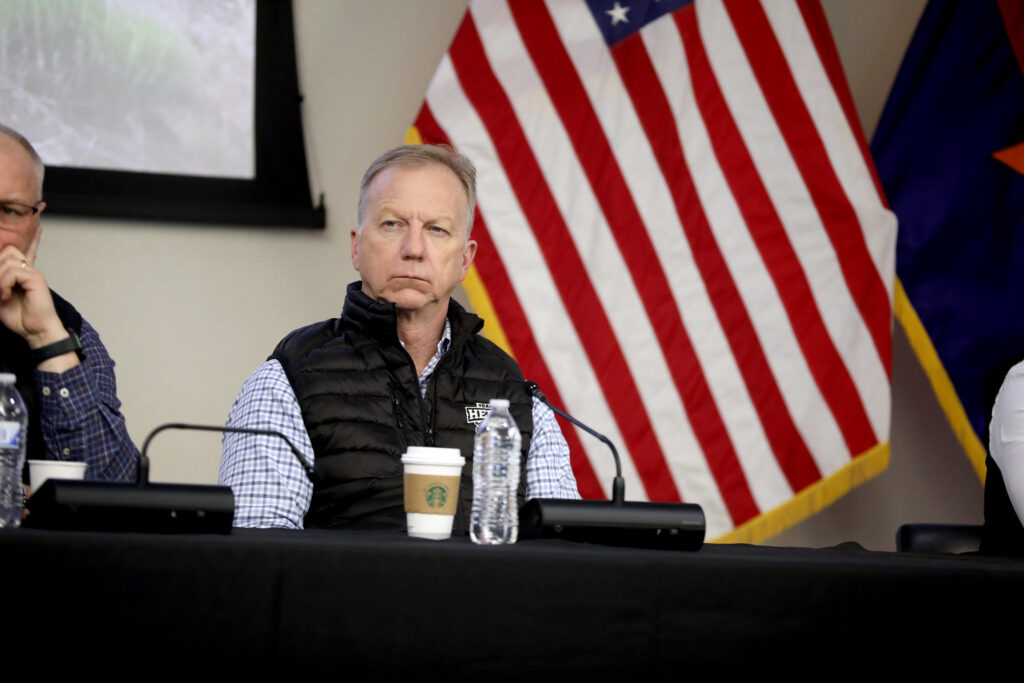On May 16, 2019, ICAS was invited to the Daniel Morgan Graduate School of National Security to attend a presentation by Federal Communications Commission (FCC) Commissioner Michael O’Rielly. He spoke on the recent FCC decision to deny China Mobile’s bid to provide international telecom services in the U.S., China’s rapid development in telecommunication technology and its potential threats to U.S. national security, and U.S. concern over the United Nations International Telecommunication Union (ITU).
Beginning by addressing U.S. national security concerns over telecommunication, Commissioner O’Rielly explained the FCC’s considerations behind denying China Mobile’s application. The FCC believed that China Mobile USA, a company registered in Delaware, is under full control of China Mobile, which is subject to Chinese government funding and influence. It would be a threat to U.S. national security if a foreign telecom, under full control of an authoritarian regime, gained access to U.S. information technology. Commissioner O’Rielly expressed his concern over Chinese telecoms like China Mobile jeopardizing U.S. national security if granted a license to operate in the U.S.
However, the FCC is concerned about more than just licensing issues. Commissioner O’Rielly also expressed his concern over China’s 5G development as he pointed out that China’s practices in 5G development were unfair and illiberal. He argued that China is trying to monopolize the deployment of 5G technology the world over. As the Chinese government and its State-Owned Enterprises are essentially one and the same, he argued, this could lead to significant market distortions. For example, the Chinese government could provide low-cost loans and subsidies that assist these companies both domestically and internationally, thereby unfairly increasing their market share. He stressed that the U.S. has an obligation to take every necessary precaution before it is too late to decouple from Chinese technology that has been integrated into the existing infrastructure.
Commissioner O’Rielly stated that due to China’s authoritarian political structure, Chinese companies are recipients of unfair advantages that allow them to achieve greater international market share. Moreover, he criticized the Chinese government for blocking western technology in order to give Chinese companies an edge in 5G development. Commissioner O’Rielly expressed worries that if these Chinese companies, which reap advantages from the Chinese government’s policies, entered U.S. data infrastructure, they could pose a grave threat to U.S. national security and fair economic competition.
The Commissioner closed his talk by expressing that the U.S. wishes to change the current status-quo at the International Telecommunication Union. Commissioner O’Rielly criticized the ITU’s organization as member countries trying to have their nationals in ITU to conduct policies in favor of themselves under the name of the international community. Commissioner O’Rielly was not happy with the fact that the UN organization damaging U.S. interest by giving other countries the opportunity to conduct anti-U.S. policies. Mr. O’Rielly specifically mentioned China as one of the countries at ITU that conducts selfish policies. The chair of ITU is Chinese, who produced many policies in favor of China’s projects such as the Belt and Road Initiative, which has a deep impact on future U.S. national security. He argues that the U.S. should expect ‘a more balanced balance sheet’ with respect to ITU decisions, as the U.S. is its largest funder.
During the Q&A session, when responding to a question on the European decision to accept the entrance of China’s giant tech firms, Commissioner O’Rielly said he understood that the Europeans were confident in their capability to control China’s influence and potential intrusion in technology development. But the Commissioner also stated that he does not believe it would work as such action will ultimately lead to an opening up of free-flow information, which puts national security in danger. In response to a question regarding American involvement with the ITU, Commissioner Rielly stressed that the U.S. should either be completely in or completely out with its involvement with the ITU. However, if the U.S. remains involved, it should have a greater voice. Dr. Yuval Weber, an Associate Professor at the Daniel Morgan Graduate School, asked to what level was Trump’s Executive Order on Securing the Information and Communications Technology and Services Supply Chain, and thus, the FCC’s decision to deny China Mobile’s bid to provide international telecom services in the U.S., a response to current U.S.-China trade talks. Commissioner O’Rielly concluded the discussion by first emphasizing that the FCC is not privy to the inner workings of the current trade negotiations and could not speak authoritatively on the matter. However, he continued, that regardless of where trade talks have been headed, the FCC was moving in this direction anyway to combat these real and perceived national security threats and potential market distortions from China.
Yilun Zhang is a research associate and administrative assistant at ICAS. He obtained his M.A. in International Relations with a concentration on International Political Economy from Johns Hopkins University SAIS.




